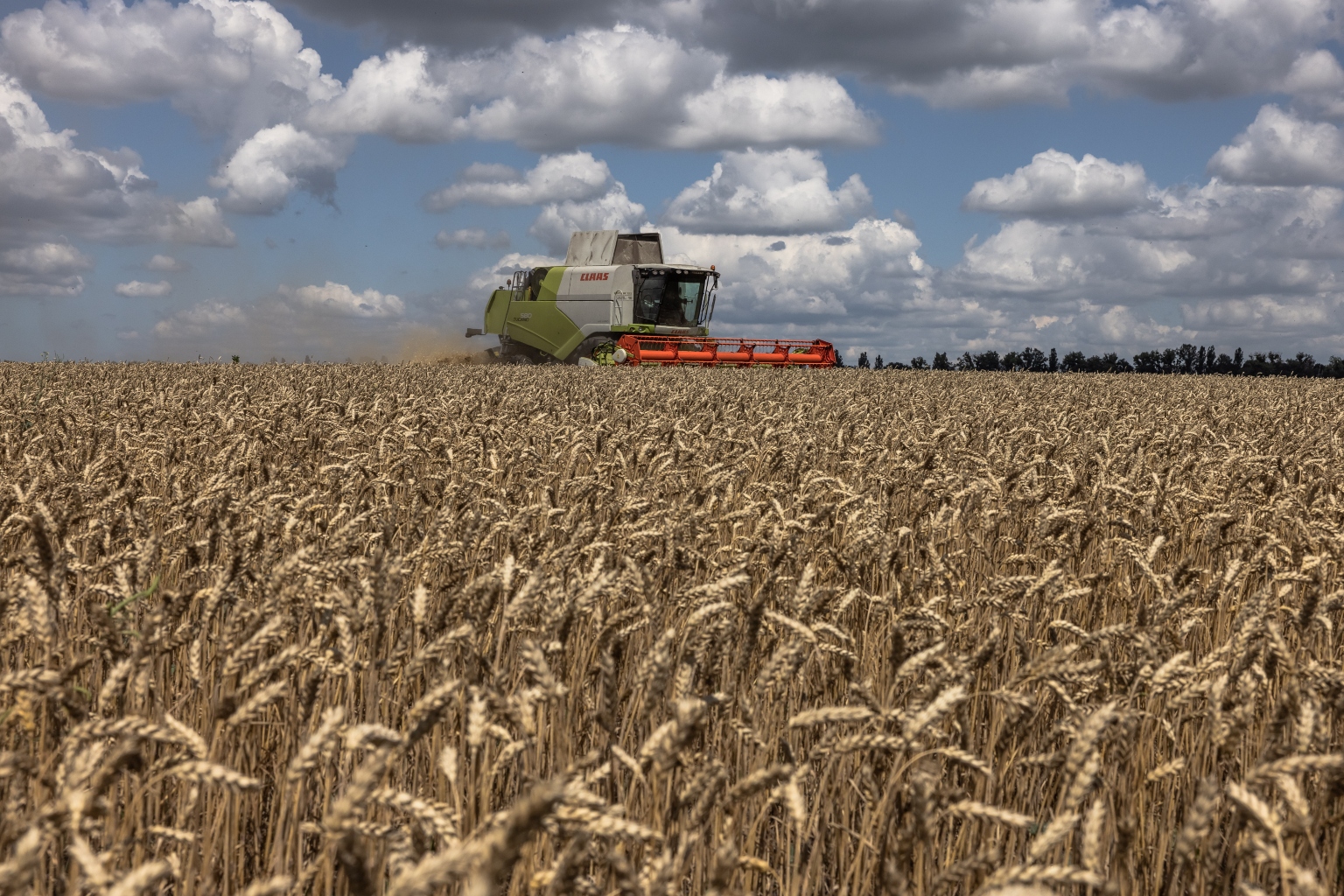Turkey says Ukraine grain exports could start within a week
Sign up now: Get ST's newsletters delivered to your inbox

Turkey is due to open a joint operations centre with Ukraine, Russia and the UN to coordinate trade under the agreement.
PHOTO: EPA-EFE
Follow topic:
ANKARA (BLOOMBERG) - Turkey said grain exports from Ukrainian ports could resume within a week and reach 25 million tonnes by the end of the year, after it brokered a deal between Kyiv and Moscow that eased fears of a global food crisis.
Exactly when exports halted by Russia's invasion would begin will be determined by logistical groundwork, Turkish President Recep Tayyip Erdogan's spokesman, Mr Ibrahim Kalin, said in an interview on Tuesday (July 26).
As many as 100 vessels carrying grain and agricultural products were trapped in Ukrainian ports when war broke out. The United Nations (UN) expects the first to move within a few days, and an adviser to global insurers has proposed a mechanism that might help cover the trade.
Still, hitting Mr Kalin's forecast for exports by December could be a challenge.
Analysis firm UkrAgroConsult says that the Black Sea ports in question - Odesa, Chornomorsk and Pivdennyi - have a maximum combined capacity of 3.5 million tons a month.
Turkey is due to open a joint operations centre with Ukraine, Russia and the UN on Wednesday to coordinate trade under the agreement.
A Russian missile strike on Odesa after the deal was reached raised doubts about Moscow's commitment to the accord, but Kalin dismissed the concerns. The UN later said all sides had reconfirmed their intent to make the deal work.
The agreement capped months of diplomacy by the Turkish leader, who has struck a delicate balance since Russian troops entered Ukraine in February.
North Atlantic Treaty Organisation (Nato) member Turkey has been vocal about its support for Ukraine and a company headed by Mr Erdogan's son-in-law has provided dozens of armed drones to bolster the Ukrainian military.
Yet Ankara refrained from joining sanctions targeting Russia and kept lines of communication open with President Vladimir Putin.
"If everyone burns bridges with Russia, who'll talk to them? We have seen (with this agreement) how important Turkey's balancing act is," Mr Kalin said.
The invasion of Ukraine added to fronts where Turkey needs to engage with neighbouring Russia. Moscow provided a quarter of Turkey's crude oil imports and around 45 per cent of its natural-gas purchases last year.
And the two nations have become entangled in geopolitical flashpoints, including wars in Syria and Libya.
Moscow became the leading ally of the Bashar al-Assad regime in Damascus, while Turkey supported rebel groups opposing it.
Turkey has in the past sent troops into northern Syria, intent on preventing a new wave of refugees heading toward its frontier and countering Kurdish militants that Ankara sees as a major threat.
Mr Kalin reiterated Mr Erdogan's recent pledge to once again hit "terrorist" Kurdish groups in Syria, saying that a cross-border operation could begin "at any time".
Yet Turkish plans for another operation to push the militants further away from the border have run into opposition from the US, as well as from Russia and Iran, another key Assad supporter.
Ankara says the Kurdish armed groups in Syria - which were backed by western nations in the war with Islamic State of Iraq and Syria militants - are indistinguishable from the Kurdistan Workers' Party, or PKK.
The PKK has been fighting for autonomy in the south-east of Turkey for decades and is designated a terrorist group by the US and European Union.
Mr Kalin criticised Twitter posts by US Central Command on Sunday praising Kurdish militants killed earlier this month - ostensibly in an operation staged by Turkish forces.
"This is not something that can be accepted as part of the fight against terrorism and within the Nato alliance," he said.

